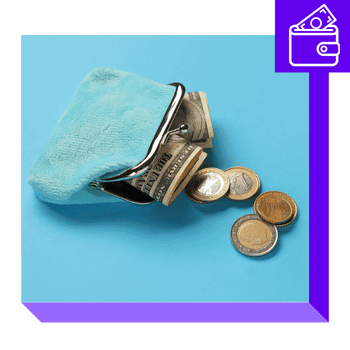
Navigating Personal Finance : A Casual Guide For Women
March 31, 2024
Let's face it, finances can be confusing. Between budgeting, saving, and planning for the future, it's enough to make our head spin. But guess what? It is not as complicated as it sounds.
- Is Your Emergency Fund Ready for a Rainy Day?
- Job Jitters: The 'What If' Scenario
- How can I improve my credit card score?
- Am I saving enough for retirement?
- Are you prepared for unexpected changes to your living expenses?
- Am I adequately insured?
- Am I taking advantage of tax-saving opportunities?
- What's my net worth?
- If I have children, how will I fund for their education?
- Do I have a Estate Plan in place?
1. Is Your Emergency Fund Ready for a Rainy Day?
Life throws curveballs. A car repair, a leaky roof – that's why having an emergency fund is crucial. Think of your emergency fund as your financial umbrella. It is there to keep you dry when life's storms hit unexpectedly. A good rule of thumb is to have enough to cover three to six months of living expenses. If you're not there yet, don't stress. Start small and build up.
2. Job Jitters: The 'What If' Scenario
Losing a job can be scary, but having a plan can ease that fear. Having a solid emergency fund can be a lifesaver during this time. Besides your emergency fund, consider diversifying your income streams. Maybe it's time to turn that hobby into a side hustle?
3. How Can I Improve My Credit Card Score?
A healthy credit score can open doors – from better interest rates to easier loan approvals. Pay your bills on time, keep your credit utilization low, and don't be afraid to check your credit report for errors.
4. Am I Saving Enough For Retirement?
Retirement may seem far off, but it is important to start saving early. Consider your retirement goals and whether you're contributing enough to meet them. Retirement savings often come with tax benefits, and it's crucial to invest in your future self. Also, many employers offer retirement plans with matching contributions – free money! But if you have debt, should you continue saving for retirement. Yes! Even with debt, contribute to your retirement plan, even if it's a small amount. Focus on tackling high-interest debt first, but don't neglect your future financial security.
5. Are You Prepared for Unexpected Changes to Your Living Expenses?
Your rent has increased or maybe you're moving to a news place or planning a family. Expenses can fluctuate. Whatever it is, revisit your budget regularly and adjust accordingly. Are there areas where you can cut back and accommodate new expenses? Can you find ways to earn more income if needed? Being proactive is key.
6. Am I adequately insured?
Insurance is essential for protecting your finances. Review your health, life, and disability insurance to ensure you're covered in case of an unforeseen event.
7. Am I taking advantage of tax-saving opportunities?
Taxes can take a significant bite out of your income. Learn about tax deductions and credits that you may be eligible for to reduce your tax burden.
8. What's Your Net Worth?
Calculate your net worth by subtracting your liabilities from your assets.This gives you a snapshot of your financial health and helps you make informed decisions.
9. If I have Children, How will I fund for their education?
Starting early and saving consistently, even small amounts, can benefit from compound interest over time. Explore various investment options like 529 plans (educational savings accounts with tax benefits), mutual funds, or ETFs, scholarships and grants. Always take into account your risk tolerance and investment timeline.
10. Do I have a Estate Plan in place?
Building a financial legacy is a gift to yourself and your loved ones. Many online resources and workshops cater specifically to women and estate planning. Do your research and empower yourself with knowledge!
Remember, personal finance is personal. There's no one-size-fits-all answer, but asking the right questions is the first step. So, keep asking, keep learning, and keep growing that financial savvy. You've got this! 🌟
Subscribe to She Invests
A weekly newsletter filled with money tips & insights, curated for women.
Related posts
Learn how to save money effectively! Explore practical strategies to build healthy saving habits. Discover how to create a budget, set SMART goals, manage spending wisely, and achieve your financial goals. Building a healthy savings habit is your key to unlocking financial freedom.
Starting small should not hold you back from investing! Investing is about starting early and being consistent. Learn how to overcome fear, invest with tiny amounts, and build a secure financial future with mutual funds, spare change strategies, and smart habits. Remember, investing is a long-term strategy for building wealth.

